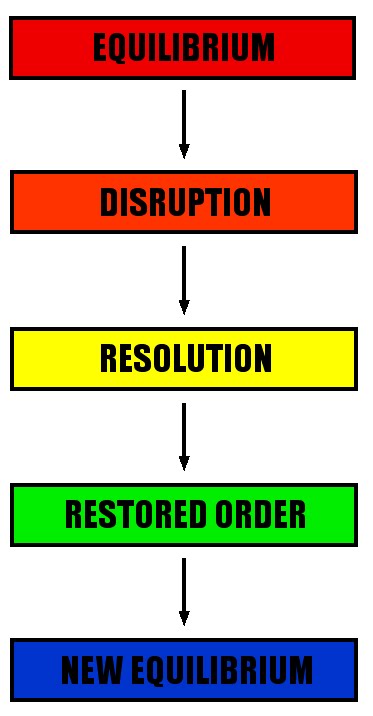literary critic, sociologist and essayist.
Todorov in 1969 produced a theory which he believed to be able to be applied to any film. Todorov believed that all films followed the same narrative pattern. They all went through stages called the equilibrium, disequilibrium, acknowledgement, solving and again equilibrium.
There are five stages the narrative can progress through:
1. A state of equilibrium (All is as it should be, equal balance, )
2. A disruption of that order by an event (disequilibrium).
4. An attempt to repair the damage of the disruption.
5. A return or restoration of a NEW equilibrium
In these stages narrative in seen as circler structure instead of linear and is driven to achieve a balance (equilibrium), even though the end equilibrium may not be the same as the one at the beginning.
Todorov argues that narrative involves transformation and characters are changed by the disruptions.

No comments:
Post a Comment